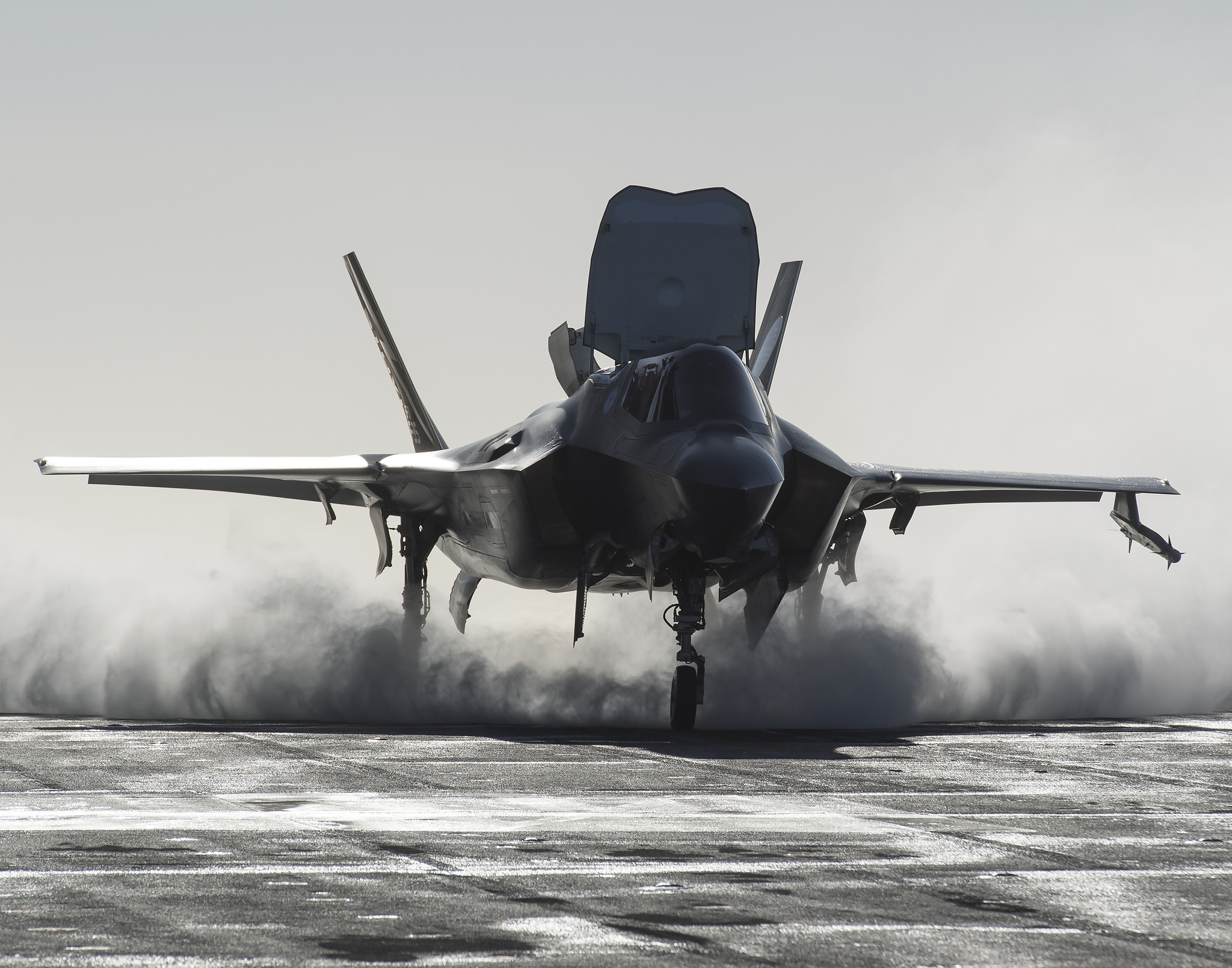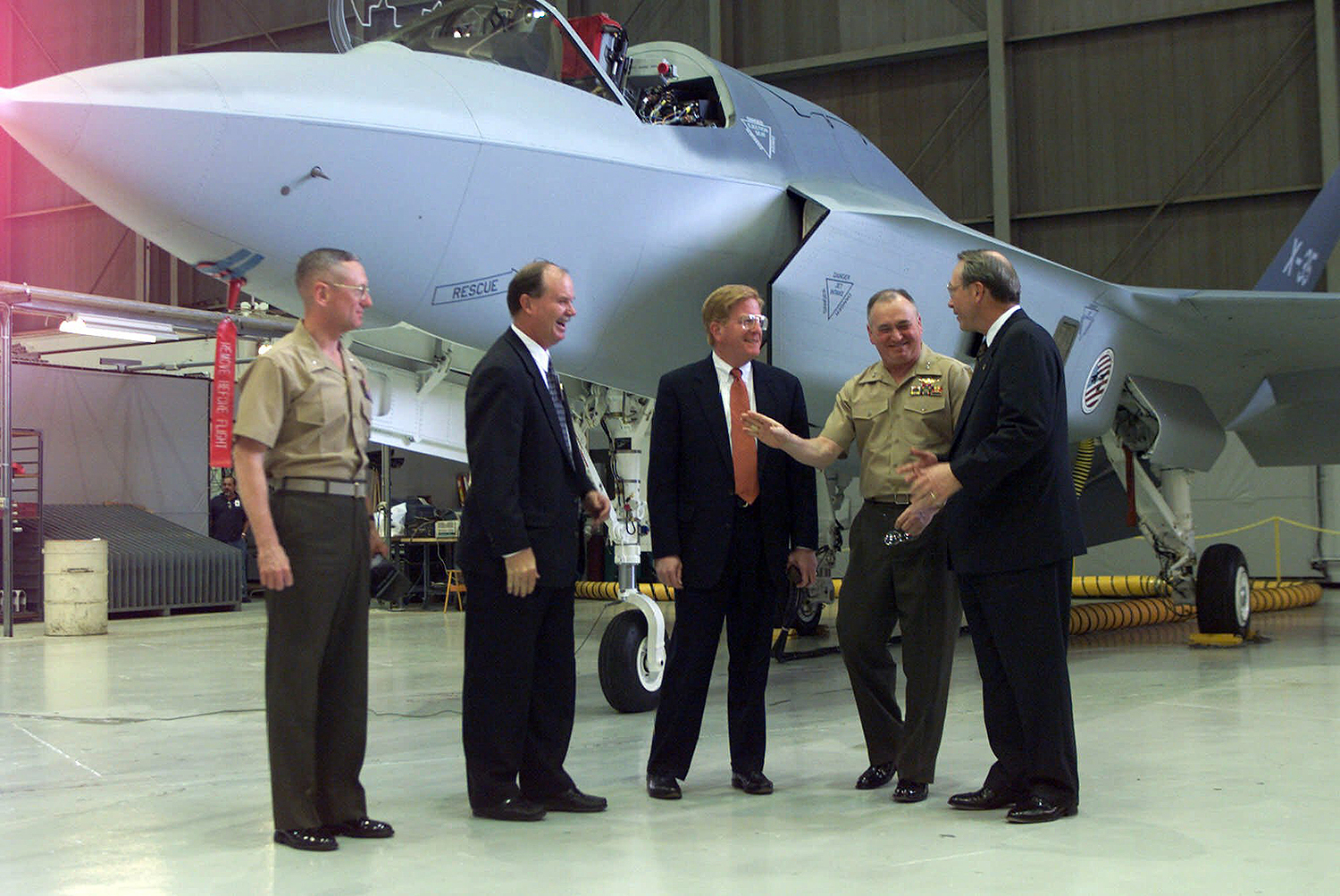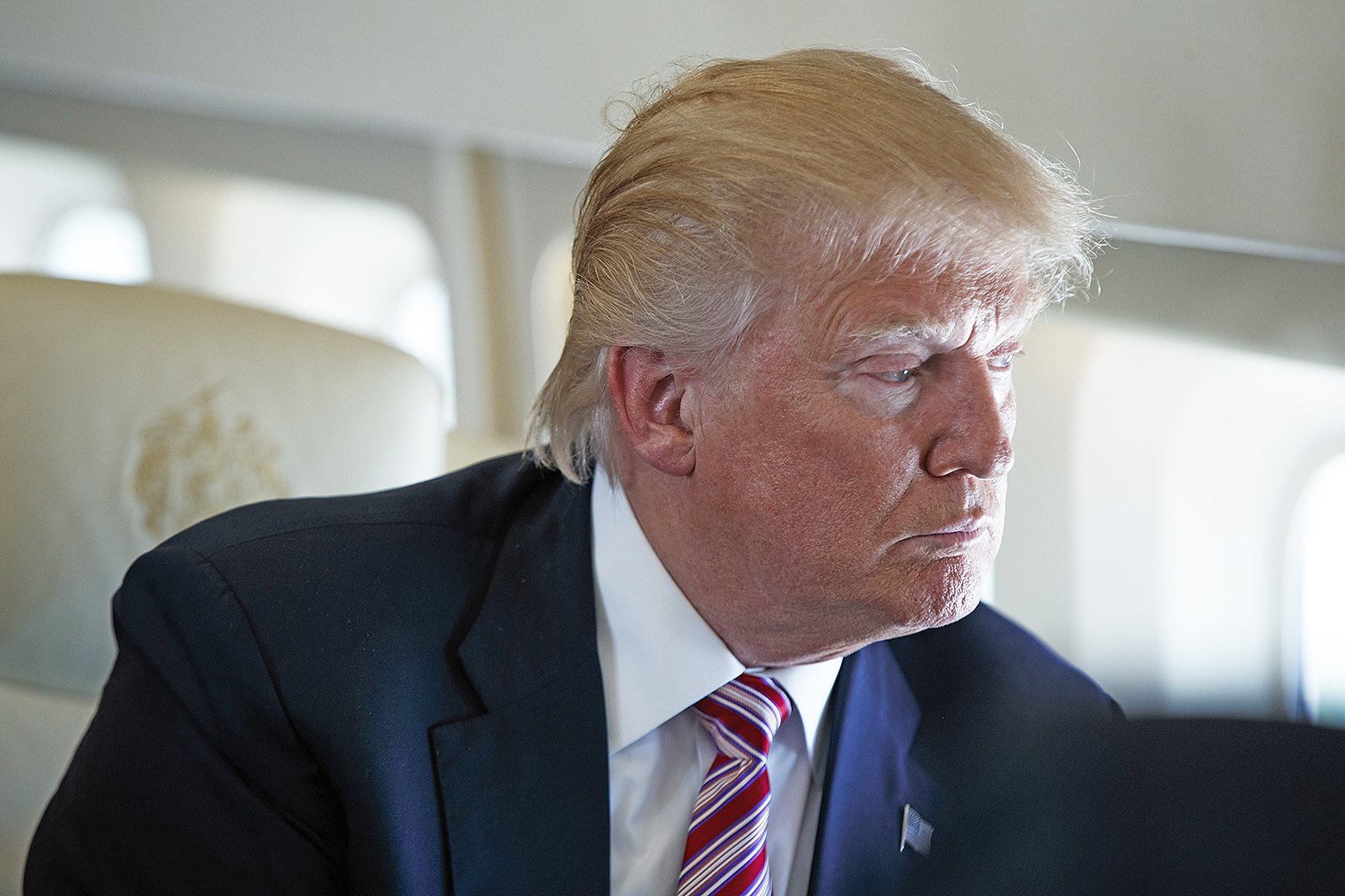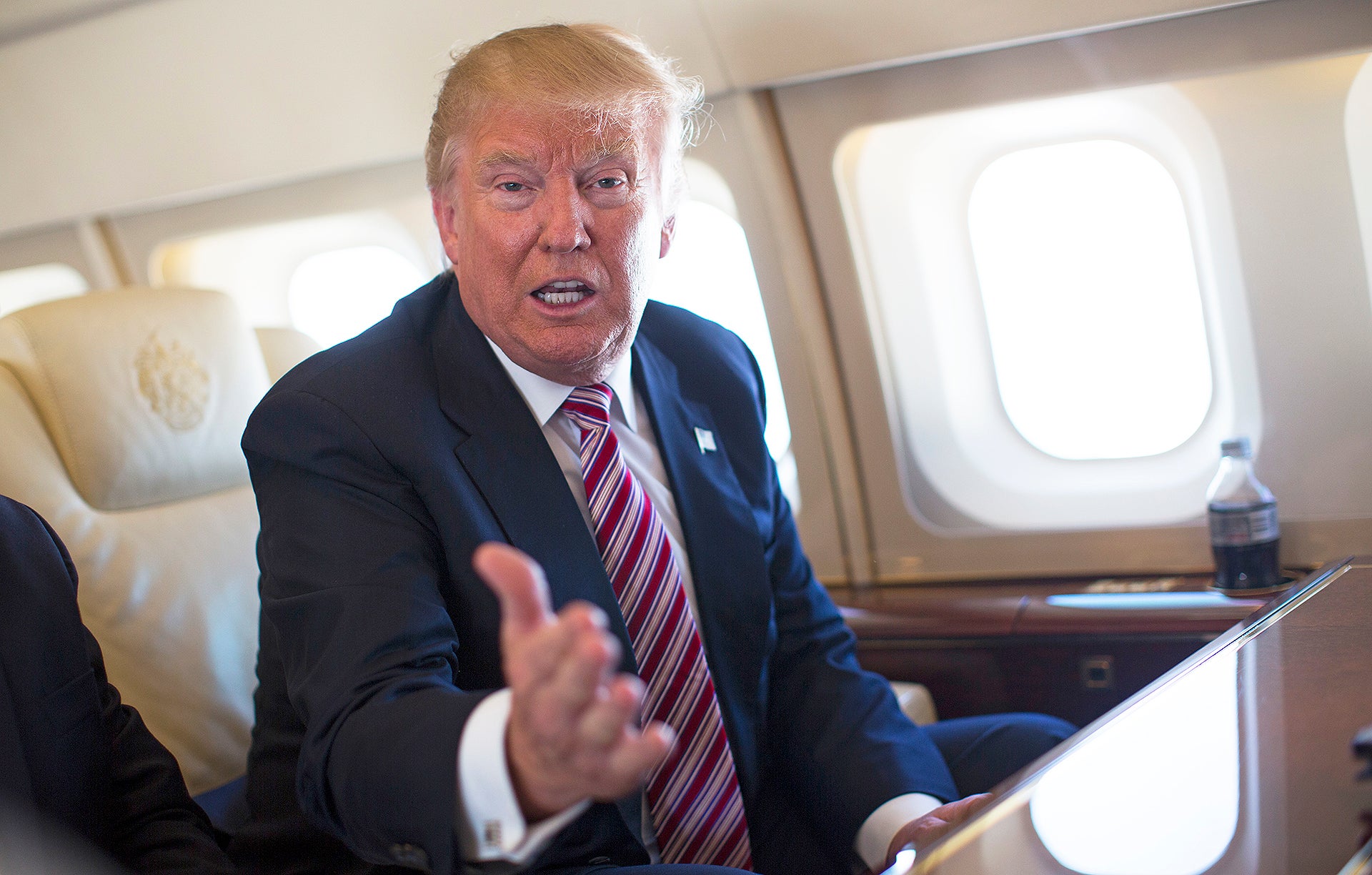President Elect Donald Trump is just weeks away from taking over as Commander in Chief. Yet most of what we know of his plans has come from a series of fragmented tweets, sound bites from “victory rallies,” and comments from his transition team. That began to change Sunday when Trump sat down for his first interview since the election.
Chris Wallace grilled Trump on a number of hot-button issues, but interestingly Trump lashed out not just at the Air Force One replacement program, but also the F-35 program and the Pentagon’s total lack of oversight when it comes to military officials taking high paying jobs with big defense contractors after they retire.
When asked what we can expect once he actually takes office, Trump stated:
“I want to make good deals for this country. I don’t need a $4.2 billion airplane to fly around in, O.K.? I don’t need that, especially when it’s totally out of control. You know, they’ve lost control of it. I let them know that I don’t want this.
“I just see things that’s—if you look at the F-35 program, with the money, the hundreds of billions of dollars, and it’s out of control. And the people that are making these deals for the government, they should never be allowed to go to work for these companies.
“You know, they make a deal like that and two or three years later, you see them working for these companies that made the deal. I’m going to a very—you know, lobbyists I’m doing. This is bigger than the lobbyists. When people order from these massive companies, these massive deals, I don’t want the people making these horrible—and they’re horrible deals—the overruns, the cost overruns, I don’t want them going to work for the companies after the deals are made. They should have a lifetime restriction.”

This statement comes just days after Trump controversially slammed the USAF’s Air Force One replacement initiative, a move The War Zone dissected in great detail. Building a new Air Force One is certainly a source of pride for Boeing, and the program will bring development dollars as well as help stretch the longevity of the 747-8i production line, which is already struggling to prove fiscally worthwhile. Yet Trump’s policies abroad could result in a much bigger loss for Boeing than the cancellation of a couple highly modified 747s could.
If Trump were to start a major trade dispute with China, Boeing stands to lose massive amounts of revenue in the form of lost airliner orders. Currently, China is the largest emerging market for commercial airliners in the world. An astounding 6,810 planes worth $1.025 trillion are predicted to be sold to airlines in the country within the next 20 years and Boeing is becoming deeply invested into seeing their products end up in Chinese airliner fleets. A major part of this strategy includes building a 737 assembly plant near Shanghai.
How all this will sit with a Trump administration—which is vehemently opposed to outsourcing manufacturing jobs—is yet to be seen. And although Trump and Boeing CEO Dennis Muilenburg talked last week, Trump’s remarks yesterday makes it seem as though nothing has changed.
Additionally, Trump’s national security cabinet is very hawkish when it comes to Iran. Although tearing up the P5+1 nuclear deal with Iran completely would be foolish, dumping parts of it could happen. This could set US-Iranian relations back years, and it could also spell doom for Tehran’s large $17 billion order with Boeing for 30 777s and Boeing 50 737s.
In short, Boeing has a lot to lose when it comes to a protectionist Trump administration.
Trump’s comments on the F-35 come as the program continues to suffer from a disconnect between the rosy picture being painted by those in the program and the far more glum outlook put forward by those providing independent oversight of it. Still, Trump’s mention of the Joint Strike Fighter comes as no real surprise. Until mentioning the Air Force One replacement program last week, the F-35 was really the only weapons development program Trump had remarked on during or after the campaign.

Whether Trump will restructure, curtail or even cancel the F-35 is unclear, although the latter option is unlikely, considering how deeply invested the Pentagon already is on the program. Then again, with this administration anything is possible.
Pouring more fuel on the fire, Trump tweeted a follow-up comment on the F-35 this morning, sending Lockheed into damage control and their stock diving:
The president elect’s strong messaging concerning what has become known as the Pentagon’s “revolving door” also raised eyebrows. This unique “ecosystem” that clearly invites corruption is one in which defense officials with prominent influence over procurement programs retire only to take high-paying jobs at big defense companies. Often times, before leaving their government or military jobs, these same officials had some sort of control or influence over the same defense programs that the companies that hire them won or ran at the time. It isn’t even that uncommon for a military official working as lead decision maker for a big acquisition program (representing the customer, AKA the DoD and the taxpayer) to retire just to go run the same program from the civilian side for the same company that they had a hand in awarding said program or contract to. The crazy thing it’s all perfectly legal… At least for now.
During the interview, Trump quickly noted that he is going to look for a lifetime ban on officials moving from high-up roles in the Pentagon to big jobs in the defense industry. We don’t know if both those in uniform and civilian Pentagon leadership would be equally affected under such a scheme, but we do know that Trump has said in the past that he intends to put a five year mandatory waiting period between the time anyone leaves office and when they can become a lobbyist. This may also include civilian defense officials moving to private sector defense jobs, with military officers having a life-long ban on doing something similar. More details to come.
Interestingly, Trump’s pouncing on this topic comes just a couple days after we reported that Air Force ex-Chief of Staff General Mark Welsh took a position on the board of Northrop Grumman. This is the same company that secured the critical and massive B-21 stealth bomber contract while the force was under Welsh’s purview.
All this points to major administrative and human resources changes coming to the Pentagon, as well as severe reform in the way the government buys its weapons. We have already discussed some of the broad changes a President Trump will likely make on America’s defense apparatus and foreign policy, but exactly how specific reforms will manifest themselves, and what weapon systems will be winners and losers under the new administration will be greatly determined by incoming Secretary of Defense Mattis. That is if he is given a waiver from Congress that allows him to serve in the role without spending seven years out of uniform first— an odd and somewhat ironic reality considering Trump’s push to break the personnel bonds between the Pentagon and the massive industrial complex that supports it.

Wallace also grilled Trump on his transition team’s blowing off of the intelligence community’s assessment that Russia meddled in the Presidential election, and to his campaign’s direct benefit. This is something that has been all but a certainty for some time, although having the intelligence agencies make a near total claim that Moscow specifically supported Trump in the process is new, and one full of political pitfalls on both sides of the aisle.
Trump’s response during the interview was as such:
“I don’t want anyone hacking us. And I’m not only talking about countries. I’m talking about anyone, period… But if you’re going to do that, I think you should not just say Russia, you should say other countries also, and maybe other individuals. It’s not necessarily… It could be. I mean, it could be. Hey, look, we had many people saying one of the great victories of all time. They’re very embarrassed.”
President Obama has since ordered a better-late-than-never investigation into the situation, dating back to 2008, but it seems that Trump has little interest in admitting that anyone else could have been to blame for his win in any way—Russia included.
Trump’s team slamming America’s intel community before he even takes office sets a bad tone for the coming four years, and has given more ammunition to those who question Trump and his team’s connections to Russia and motivations for being so quick to defend Moscow. It also doesn’t help when one Bush administration alumni and Trump administration Secretary of State candidate goes on national news and floats a “false flag” theory behind the hacking. Then again, Trump himself is a bit of a conspiracy theorist, and so are the folks making up a good portion of his inner circle some would claim.
Finally, Trump was confronted about reports that he has only taken a handful of his daily intelligence briefings since being elected President. Here’s Trump’s response:
“First of all, these are very good people that are giving me the briefings. If something should change from this point, immediately call me. I’m available on one minute’s notice.
“I don’t have to be told—you know, I’m, like, a smart person. I don’t have to be told the same thing in the same words every single day for the next eight years. It could be eight years—but eight years. I don’t need that.
“But I do say if something should change, let us know. Now, in the meantime, my generals are great, are being briefed. Mike Pence is being briefed, who is, by the way, one of my very good decisions. He’s terrific. And they’re being briefed. And I’m being briefed also.
“But if they’re going to come in and tell me the exact same thing that they told me, you know, that doesn’t change necessarily. There might be times where it might change. I mean, there will be some very fluid situations. I’ll be there not every day but more than that.
But I don’t need to be told, Chris, the same thing every day, every morning, same words. Sir, nothing has changed. Let’s go over it again. I don’t need that.”
In all fairness, not every President has been a great study of daily US intelligence reports since the daily brief became a thing at the start of the Nixon administration. In fact, Trump himself chided President Obama for not taking every daily brief once in office.
Still, considering how rapidly the world is moving, and Trump’s less than stellar baseline knowledge of foreign policy and defense issues, it would be nice to see him do a lot more cramming before taking to the Oval Office on January 20, 2017.

Contact the author: Tyler@thedrive.com
